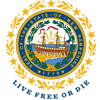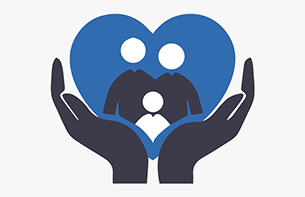That’s Inclusive! Podcast
The NHCDD would like to introduce their new podcast, That’s Inclusive!
We want to talk about disability and what it means to live a full life engaging in our communities. What does that look like? And how can we work together to make our world a more inclusive place?

Now available on Spotify
Trailer: Welcome!
Dec 21 • 00:58
An introduction to what you can expect from episodes of "That's Inclusive!" Conversations with the DD Council about what inclusive living really means for people with intellectual and developmental disabilities.
Episode 21: Disability Culture
In this episode Vanessa and Pat talk about disability culture and the contrast between shared history and experience and individual limitations.
Learn More:
Disability culture is something you are a part of — not something that is happening to you by John Loeppky
Frida Kahlo's work as disability art culture
Disability Pride on audiobook
Episode 20: Interview with Jessica Goff from Seacoast Outright
In this episode Vanessa talks with Jessica Goff from Seacoast Outright about their intention to make the Portsmouth Pride event an intersectional and accessible space to celebrate who we are.
Learn More:
Seacoast Outright
Portsmouth Pride
Gather
Episode 19: Access to Science with SEE Science Center and  Unchartered Tutoring
Unchartered Tutoring 
In this episode, Chase talks with Peter Gustafson and Shana Hawrylchak from the SEE Science Center and Amber Nicole Cannan from Unchartered Tutoring about the importance of inclusion and accessibility in scientific spaces.
Learn More:
SEE Science Center
Unchartered Tutoring 
Episode 18: DD Partners introduce the Stop Special Campaign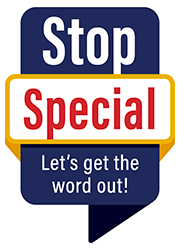
The Directors of the DD Act Partnership, Isadora Rodriguez-Legendre, Stephanie Patrick, and Kelly Nye Lengerman discuss the launch of our Stop Special Campaign advocating for evolving the language we use when talking about disability.
Historically, the term “special” was used as a euphemism for disability. Over time it has embedded itself in policy, laws, and professional titles. Many in the disability community find this term offensive and “othering”. Join us in talking to our communities about leaving the word special behind when talking about disability.
Learn More:
Stop Special Campaign
StopSpecial.org
New Hampshire Council for Developmental Disabilities
Disability Rights Center of New Hampshire
Institute on Disability - University of New Hampshire
Autism Awareness Month Bonus Episode: Being an Autistic Writer in Hollywood with Paul Philben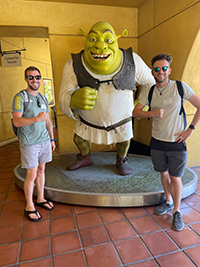
This episode contains adult language. Please be advised.
In this bonus episode, Blake interviews Paul Philben, from MidKidd Productions and Netflix, about what it is like to be an autistic writer in Hollywood.
Transcript. This episode contains adult language. Please be advised.
Episode 17: Sarah Tollefsen from ABLE NH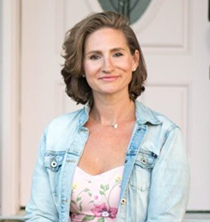
In this episode ABLE NH director, Sarah Tollefsen, speaks with Isadora about ABLE NH’s task forces and the work they are doing to bring grassroots advocacy to the community.
Learn more:
Able NH
www.ablenh.org
Advocate NH Conference on October 4, 2024, in Concord, NH – more details to come
Episode 16: Adaptive Sports Partners of the North Country 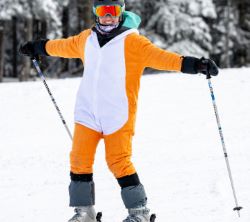
In this episode, Chase talks with Kelly Starr, director of Adaptive Sports Partners of the North Country about the important role that sports serves in creating inclusive communities.
Learn more:
Adaptive Sports Partners
Episode 15: Storytelling Through Media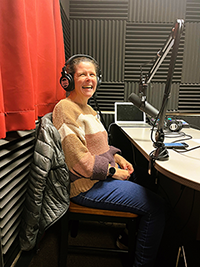
In this episode Vanessa and Pat discuss storytelling through media platforms and how advocates can use these channels to elevate their voices and effect change.
Learn More:
Jim and Pat, You Tube Channel
Episode 14: Mental Health and Disability Collaborative Care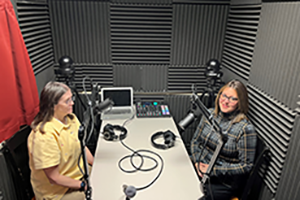
In this episode Isadora talks with advocate Kelly Ehrhart and Julie Lago of Center for Life Management about the collaborative care model that is changing the way disabled people with mental health needs receives care in our system.
Learn more:
What is Continuum of Collaborative Care? A specialized approach that coordinates care across services and providers for better person-centered outcomes of services.
Center for Life Management
Community Crossroads
Episode 13: Including Disability in DEI 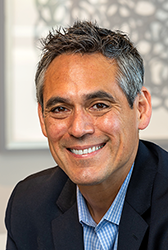
In this episode, Isadora talks with Ernesto Burden, publisher of 603 Diversity Magazine and advocate for inclusive community spaces.
Learn more:
• Uninclusive Inclusion: Intersectionality That Forgets People with Disability
Episode 12: Voter Access
In this episode, Vanessa and Chase talk with Disability Rights NH attorney James Ziegra about the good, the bad, and the ugly picture of voting access in NH. 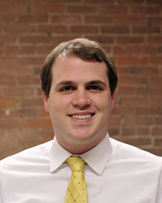
Learn more:
- DRC-NH
- Know Your Voting Rights
- https://drcnh.org/know-your-rights/know-your-voting-rights-a-toolkit-for-voters-with-disabilities/
- https://drcnh.org/know-your-rights/know-your-voting-rights-one4all-accessible-voting-system/
- https://drcnh.org/know-your-rights/know-your-voting-rights-absentee-voting/
- One4All Accessible Voting - YouTube (produced by Future In Sight)
- Democracy Live
- The Condition of Voting Accessibility in the Granite State: A Voting System Audit Request
Episode 11: Being a Family Caregiver
In this episode Pat interviews Sarah Sadowski, 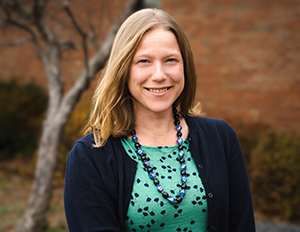 parent of a child with a disability and DD Council Member. Pat and Sarah discuss taking on the role of family caregiving and the effects of the paid caregiver crisis.
parent of a child with a disability and DD Council Member. Pat and Sarah discuss taking on the role of family caregiving and the effects of the paid caregiver crisis.
Learn more:
Caregiver's Conference (coalitionofcaring.org)
Caregiving 101: On Being a Caregiver - Family Caregiver Alliance
Episode 10: Taking Part in Democracy
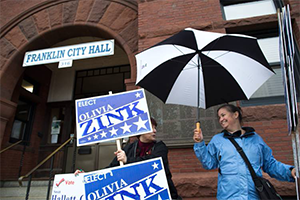 In this episode Pat interviews Olivia Zink. Olivia is the executive director for Open Democracy NH. Pat and Olivia discuss all things democracy in the Granite State. They cover:
In this episode Pat interviews Olivia Zink. Olivia is the executive director for Open Democracy NH. Pat and Olivia discuss all things democracy in the Granite State. They cover:
- Changes to absentee voting since the end of the pandemic
- Efforts to strengthen the democratic process
- The effect of money in politics
- Accessible voting options
- And at least one surprise!
Learn more:
Open Democracy NH
Voting scorecards - Open Democracy Action
Voting Accessibility in NH (futureinsight.org)
Episode 9: Bonus Episode Sheila Vargas, All Access Trails
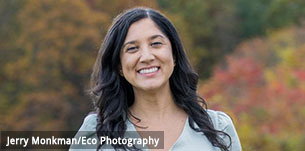 Sheila Vargas, the Community Partnerships Manager at the Nature Conservancy, talks with Blake Tyler about involving the community in planning accessible outdoor recreation, how preset notions send a false message that nature is only for certain people, and how the work to make the outdoors more inclusive to everyone continues.
Sheila Vargas, the Community Partnerships Manager at the Nature Conservancy, talks with Blake Tyler about involving the community in planning accessible outdoor recreation, how preset notions send a false message that nature is only for certain people, and how the work to make the outdoors more inclusive to everyone continues.
Learn more:
The Nature Conservancy in NH
The Cedar Swamp All Persons Trail
The All Persons Trail at Ossipee Pine Barrens
#Trails4All
NHTrails4All
Episode 8: Ableism and Inspiration Porn
That’s Inclusive! hosts Isadora, Patricia and Vanessa discuss inspiration porn. What it is, how we identify it, how it distracts from addressing real barriers, and how it needs to go away.
Learn more:
Stella Young: I am Not Your Inspiration, Thank You Very Much https://www.youtube.com/watch?v=8K9Gg164Bsw
Excerpt from: How to talk about disability sensitively and avoid ableist tropes by Shruti Rajkumar
https://drcnh.org/rap-sheet/an-excerpt-from-how-to-talk-about-disability-sensitively-and-avoid-ableist-tropes/
Episode 7: Interview with Parent Advocate, Carrie Duran
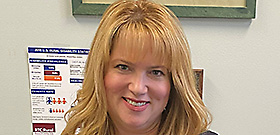 Parent advocate, Carrie Duran and NHCDD Executive Director, Isadora Rodriguez-Legendre, talk about helping disabled young people navigate learning about sex and relationships..
Parent advocate, Carrie Duran and NHCDD Executive Director, Isadora Rodriguez-Legendre, talk about helping disabled young people navigate learning about sex and relationships..
Episode 6: Interview with Jean Crouch, Chair of the NHCDD representing the Department of Elderly and Adult Services
Jean Crouch talks with Patricia Vincent-Piet about becoming a council member and the importance of having healthy aging issues at the table.
Episode 5: Interview with Arielle Van de Water on the Intersection of Developmental Disability and Mental Health
Arielle Van de Water and Isadora Rodriguez-Legendre discuss the intersection of autism and mental health and the value of having people "in your corner" while being your authentic self.
Episode 4: Parents with Disabilities
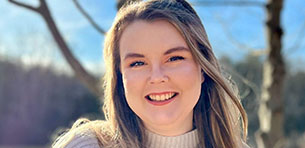 Katelin Garland and Patricia Vincent-Piet, a mother-daughter team, discuss Katelin’s experience growing up with parents who have disabilities.
Katelin Garland and Patricia Vincent-Piet, a mother-daughter team, discuss Katelin’s experience growing up with parents who have disabilities.
Disclaimer: some topics discussed in the episode may be upsetting to some listeners.
Episode 3: Interview with Nicole Sheaff
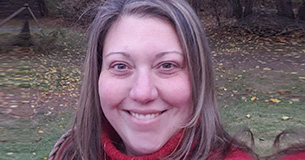 In this episode we hear from Nicole Sheaff, a parent advocate who had to learn to navigate the education and services systems to provide support for her 4 children, who have mental health and developmental disabilities.
In this episode we hear from Nicole Sheaff, a parent advocate who had to learn to navigate the education and services systems to provide support for her 4 children, who have mental health and developmental disabilities.
Learn more about:
Disability Rights Center NH
Parent Information Center
Interview with Nicole Sheaff - transcript
Episode 2: Disability Life in NH with Patricia Vincent-Piet
In this episode, New Hampshire Advocate, You Tuber and DD Council member, Patricia Vincent-Piet talks about the challenges of life in the Granite State for people with disabilities. She touches on housing, transportation, visit-ability, and ableism.
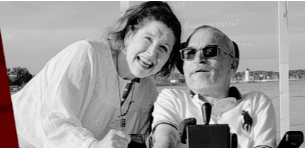 Jim and Pat Piet You Tube Channel
Jim and Pat Piet You Tube Channel
Pat’s contact information: AbleWriter@outlook.com
Episode 1: Interview with NHCDD Executive Director, Isadora Rodriguez-Legendre
In our first full-length episode, Vanessa Blais talks with the Executive Director of the NHCDD, Isadora Rodriguez-Legendre, about the work of the council and how to get involved in advocating for a more inclusive world.
NHCDD website: www.nhcdd.nh.gov
NHCDD 5-year plan: https://www.nhcdd.nh.gov/about-us/5-year-plan
Isadora’s contact information: Isadora.Rodriguez-Legendre@ddc.nh.gov
Do you want to know more about Supported Decision Making? https://drcnh.org/issue-highlight/supported-decision-making/
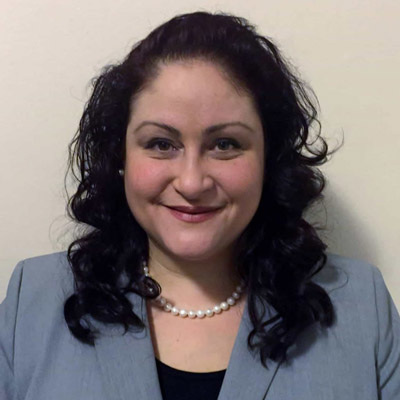
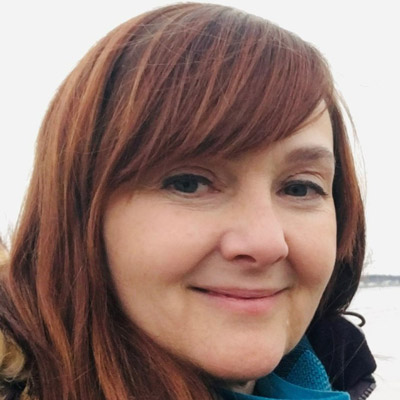
With the Executive Director of the NHCDD, Isadora Rodriguez-Legendre and Director of Policy and Planning, Vanessa Blais
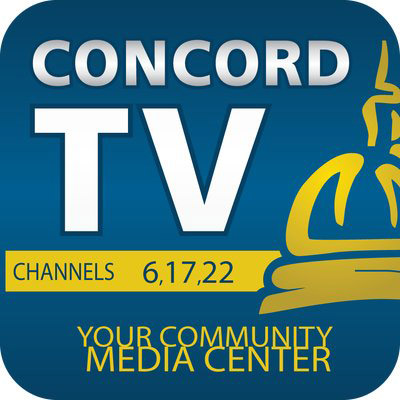 That’s Inclusive! is possible with the support of Josh Hardy and Concord TV. The views of our guests are personal and do not necessarily represent those of the DD Council.
That’s Inclusive! is possible with the support of Josh Hardy and Concord TV. The views of our guests are personal and do not necessarily represent those of the DD Council.
If you have suggestions for topics or would like to join us, please contact Vanessa Blais at Vanessa.A.Blais@ddc.nh.gov.



